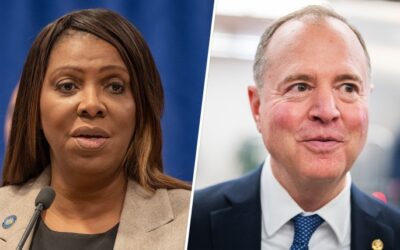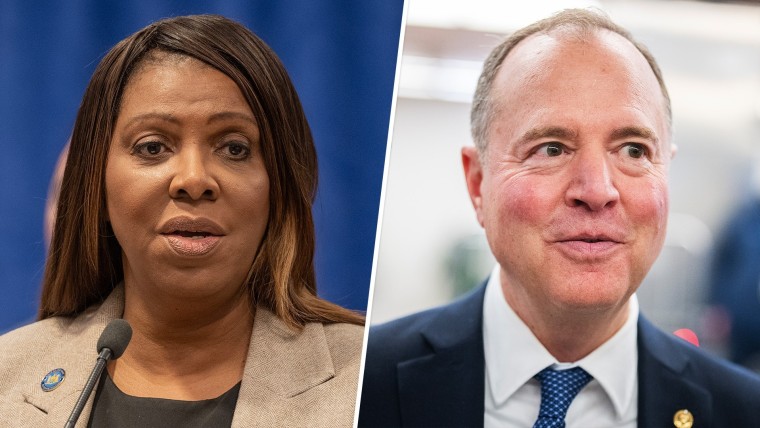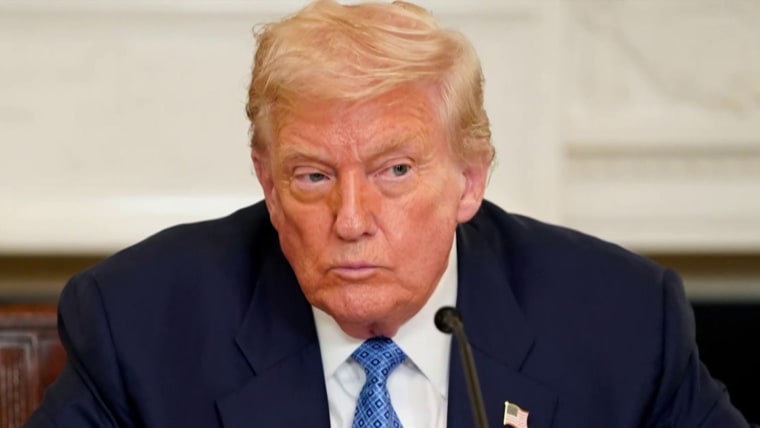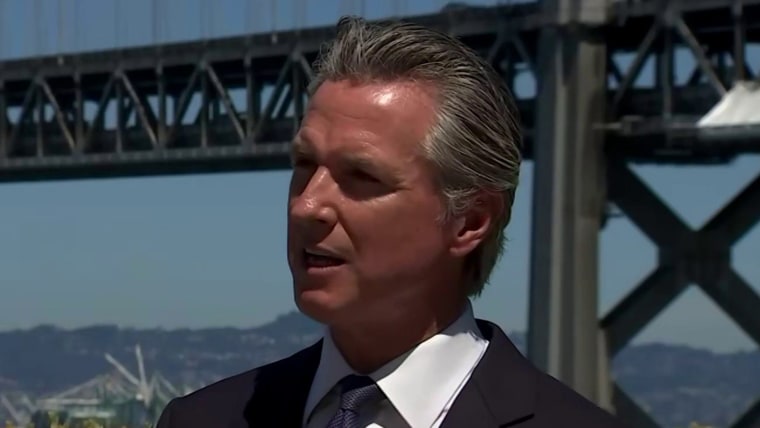Trump’s meeting with Putin poses high stakes for the Ukraine war — and his legacy
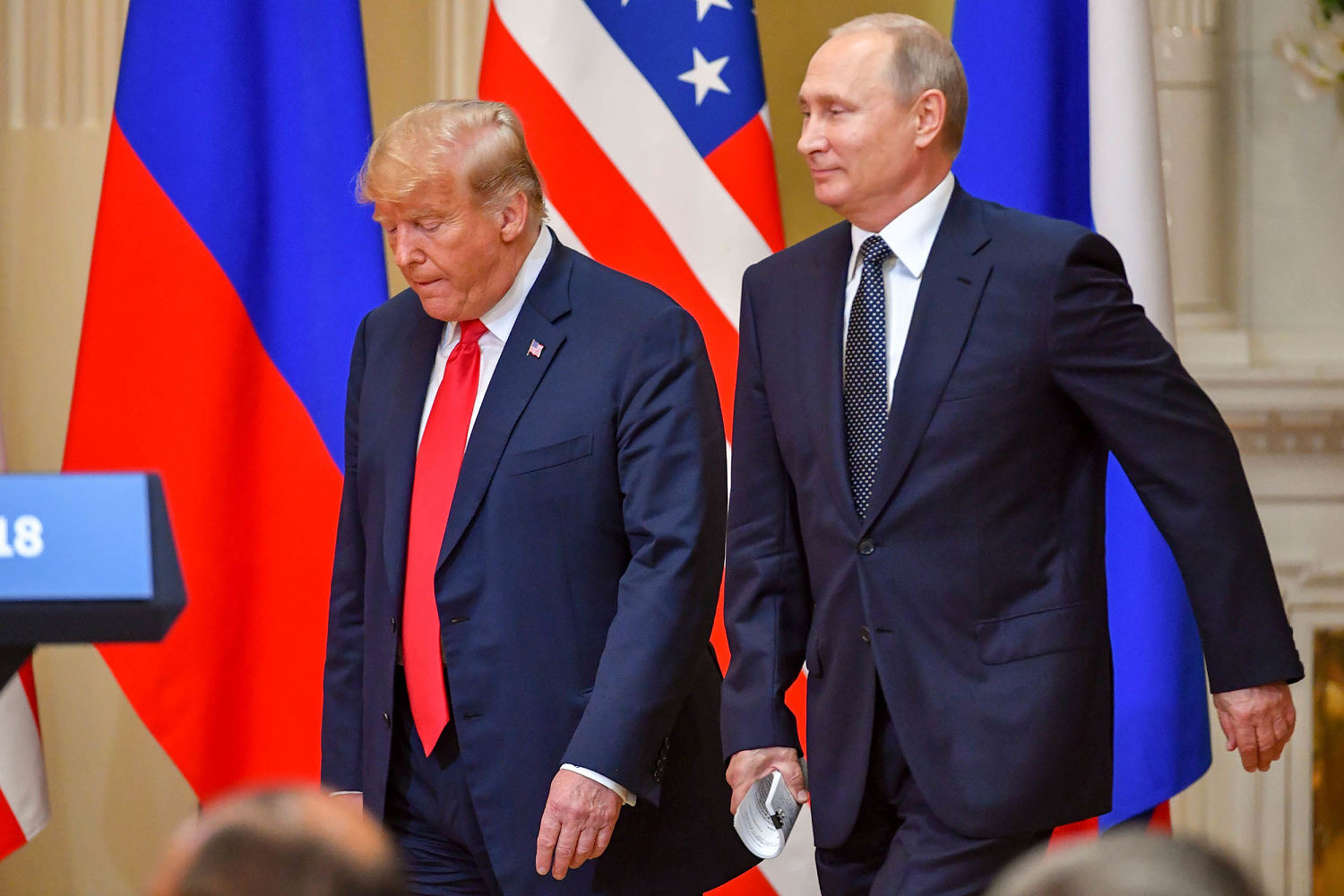

WASHINGTON — An unkept promise of Donald Trump’s presidency is that he’d end the war between Russia and Ukraine in one swift diplomatic masterstroke.
Trump made threats. He applied pressure. Still, the bombs keep falling, the casualties continue to pile up.
Now, Trump is betting that a face-to-face meeting with Russian President Vladimir Putin will yield the elusive breakthrough and possibly quell concerns among voters about his handling of the war.
The summit taking place Friday on friendly turf, the red state of Alaska, amounts to one of the biggest gambits of Trump’s second term. Hosting the meeting raises expectations that he’ll stop the fighting. The president faces traps in sitting down with Putin, who is well-versed in the territorial issues at stake, but he also enjoys economic and military leverage. Creating a durable peace that will preserve Ukraine’s independence will test the dealmaking skills that are Trump’s point of pride.
“If you roll into the meeting not prepped, you can get jammed by Putin,” said Michael McFaul, who was U.S. ambassador to Russia in the Obama administration. “Summits are to achieve an objective that advances American national interests. They’re the means to end, and I sometimes feel that Trump feels the meeting is an end in itself.”
Inside the Trump administration, a national security official acknowledged that forging a peace accord won’t be easy. One of the combatants won’t be at the table: Ukrainian President Volodymyr Zelenskyy, who has refused to relinquish territory to Russia that was illegally annexed.
“Whether or not there’s a breakthrough in the next week or two, we’ll find out,” said the Trump administration official, speaking on condition of anonymity. “Ultimately, Putin and Zelenskyy have to be able to agree on something fundamentally. Third parties can do anything they want, but these two men have to agree to things.”
Sitting in a room with Putin, a canny negotiator in his own right, Trump may be lured into endorsing a peace deal that carves up Ukraine, foreign policy experts caution.
“I worry that in the eagerness to look like a peacemaker, President Trump will say, ‘Yeah, that sounds like a good idea to me,'” McFaul said. “Putin will say, ‘Donetsk [a city in eastern Ukraine] was always part of Russia.’ And Trump will say, ‘You’re right about that.’
“Putin is good at those stories,” McFaul continued. “He knows his history, and he can be engaging in his narrative. That’s what the president needs to be ready for and his team needs to get him ready for.”
Another possibility is that Putin tries to stall the president further, promising concessions he has no intention of making in hopes of consolidating gains on the battlefield, one former U.S. official said.
Putin may try to “divert President Trump from Trump’s goal of stopping the war and establishing a ceasefire by promising things later,” said William Taylor, who was charge d’affaires at the U.S. embassy in Ukraine during Trump’s first term. “Then, Putin continues to fight and continues to kill Ukrainians.”
No matter what the outcome, Putin comes away with at least a symbolic victory: He’s getting a large, bright stage at a time when he’s an international pariah. Two years ago, the International Criminal Court issued an arrest warrant for Putin, accusing him of war crimes involving the abduction of Ukrainian children. The warrant substantially limited potential locations for the two world leaders to meet.
“President Trump — just by going to a meeting with Putin, who for most of the democratic world is a rogue, imperialist dictator — is giving him legitimacy,” McFaul said.
The summit will inevitably invite comparisons to one held in Helsinki in 2018.
At a joint news conference with Putin that year, Trump came off as eager to forge a personal connection after years of icy bilateral relations between the U.S and Russia. Citing Putin’s denial of interfering in the 2016 presidential race, Trump said at the time: “I don’t see any reason why it would be” Russia that meddled in his victory over Hillary Clinton that year. (He later claimed he had misspoken, affirming that he believed the U.S. intelligence community’s conclusion that Russian meddling had occurred but added that there “could be other people also” who interfered in the 2016 election).
This time around, Trump is more seasoned and has grown impatient with Putin’s conduct of the war. He has suggested that his wife, Melania Trump, has influenced his view of Putin, reminding him of the damage that Russia has inflicted on Ukraine.
For his part, Putin is more diminished. As of this summer, Russian casualties were expected to hit one million. If he chooses, Trump could punish Russia for prolonging the war by slapping secondary sanctions on countries that purchase Russian energy, a step he has threatened to take.
“Trump is in a stronger position this time than in that first meeting,” Taylor said. “If President Trump goes into the meeting with Putin and exercises the political, military and economic leverage that he’s got, there could be a ceasefire.”
Trump heads into the summit facing difficulties at home. His administration has struggled to stem the backlash from his base over the Jeffrey Epstein case. Last week, Trump fired the head of the Bureau of Labor Statistics following a hiring report that showed weak jobs growth.
A recent poll from the University of Massachusetts Amherst showed that Trump’s approval rating was 38% — a six-point drop from April.
“He’s pretty close to the theoretical floor in this polarized era for approval ratings,” said Alexander Theodoridis, director of the poll.
Among Trump voters, support for his handling of the Russia-Ukraine war stood at 64% compared to other issues in which they approved of his performance by significantly higher margins, Theodoridis said. A total of 85% of Trump’s 2024 voters approved his performance on immigration issues; 78% favored his work on jobs; and 71% on tariffs.
Statecraft is a proven way for presidents to improve their standing at home. A commander-in-chief enjoys far more latitude in shaping events in the foreign policy arena than when it comes to domestic affairs.
The summit, said Sen. Chris Coons, a Delaware Democrat who serves on the Foreign Relations Committee, “will change the subject in a positive way for Trump if he actually stands up to Putin and demands a just peace for Ukraine.”
“That would be a positive diversion,” Coons added. “But it would be the worst of both worlds if it [the summit] is intended both to be a diversion from the domestic focus on things like tariffs and Epstein, and he fails to be strong.”
An added incentive for Trump to end the conflict could be an award that he seems to covet. His White House appears to be methodically building a case that he has earned the Nobel Peace Prize, drawing attention to various efforts to reduce tensions in global hotspots.
January 31 is the deadline for nominating candidates for the 2026 peace prize. The Nobel selection committee will announce the winner in October of that year.
On Friday, Trump held a ceremony in the White House to mark a U.S.-brokered accord ending hostilities between Armenia and Azerbaijan. Questioned by reporters, the leaders of both countries touted Trump’s candidacy for a prize that three other American presidents have won. Barack Obama was the most recent winner in 2009.
Still, the peace deal between Armenia and Azerbaijan would be merely an amuse-bouche compared to ending the conflict between Ukraine and Russia, a nuclear-armed power.
“Putin is clearly in a weaker position,” Taylor said. “This invasion of Ukraine has turned out to be a disaster for him. And Trump has the cards this time. He’s got leverage, experience and confidence. He’s eager to solve this problem and end the war. He sees that Putin is the problem. Putin is standing between him and the end of the war.”

